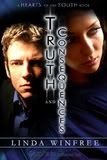Got a Grammar Gremlin?
This week, I thought I'd go for an interactive Friday post . . . do you have an English conundrum? What my students call a "grammar gremlin?" Here's your opportunity to get your most vexing English mechanics/usage/grammar questions answered! Leave your questions in the comments section, and I'll answer as many as possible over the weekend.
As a little added bonus, here's a Compact Comma Summary, borrowed with great appreciation from one of my esteemed colleagues (also available HERE.)
1. Use commas between items in a SERIES.
A. Words: Bring your notebook, pen and textbook to class every day.
B. Phrases: You can remove the cover, adjust the drive belt and replace the cover with just one tool.
C. Clauses: We cannot decide what information we wil store, how we will retrieve it or how it will be used.
2. Use commas in COORDINATE situations.
A. Compound sentence with conjunction (and, but, or, for, nor, so, yet): You must set the dial, and the ready light must be visible.
B. Compound sentence after a semicolon and conjunctive adverb (therefore, however, thus, . . .): The storm pounded against the shutters; however, no windows were broken.
C. Adjectives (only if they are reversible): It is an efficient, inexpensive unit.
3. Use commas after INTRODUCTORY elements in sentences.
A. Nouns of address: Thomas, the door is still open.
B. Mild interjections: Well, I didn't like the conference.
C. Groups of prepositional phrases: In a rush of anger without a second thought, he destroyed the experiment.
D. Participial words or phrases: Referring to the chart, you will note the clear results of the research.
E. Infinitive phrases: To install the screen door, remove the packing material and the trim.
F. Subordinate clauses (when, if, after, since, because, etc.): After he retyped the memo, Carl sent it to his boss.
G. Absolutes: Headlights piercing the fog, the ambulance continued its course.
H. Transition words or phrases: First of all, I want to explain the controls.
4. Use commas to set off INTERRUPTING ELEMENTS.
A. Nouns of address: In some cases, Mr. Jones, this rule helps.
B. Appositives (restrictive): He bought a new car, a compact station wagon.
C. Contrasting elements: The software, not the hardware, is the problem in this case.
D. Describing (but not necessary) phrases: We enjoyed the new van, painted with a bright mural.
E. Describing (but not necessary) clauses: We can't go to Tom's party, which will be held in a rented gym.
F. Absolutes: Matty McDougal, her fist clenching in anger, wanted only to be left alone.
G. Parenthetical references: The program, admittedly, is weak in some areas. He will finish the project, no doubt.
5. Use commas in STANDARD places.
A. Between and after parts of addresses in a sentence (not with zip codes): He was born in Phoenix, Arizona after the war.
B. Between and after parts of dates in a sentence: He won the race May 17, 1903, after many years of training.
C. In dialogue, to set off the direct words of a speaker: Tom said, "That is not true."
D. In a business letter after the close: Sincerely,
E. In a personal letter, after the opening and the close: Dear Matthew, Your friend,
F. Between and after titles in a sentence: William Phold, Jr., is the only son of William Phold, Ph.D.
G. In an alphabetic listing of names: Graves, Debbie
H. To change a statement into a question: Teresa is the boss here, isn't she?
I. In numbers: 1,256 421, 226, 500
So . . . have a question? Post away!
As a little added bonus, here's a Compact Comma Summary, borrowed with great appreciation from one of my esteemed colleagues (also available HERE.)
1. Use commas between items in a SERIES.
A. Words: Bring your notebook, pen and textbook to class every day.
B. Phrases: You can remove the cover, adjust the drive belt and replace the cover with just one tool.
C. Clauses: We cannot decide what information we wil store, how we will retrieve it or how it will be used.
2. Use commas in COORDINATE situations.
A. Compound sentence with conjunction (and, but, or, for, nor, so, yet): You must set the dial, and the ready light must be visible.
B. Compound sentence after a semicolon and conjunctive adverb (therefore, however, thus, . . .): The storm pounded against the shutters; however, no windows were broken.
C. Adjectives (only if they are reversible): It is an efficient, inexpensive unit.
3. Use commas after INTRODUCTORY elements in sentences.
A. Nouns of address: Thomas, the door is still open.
B. Mild interjections: Well, I didn't like the conference.
C. Groups of prepositional phrases: In a rush of anger without a second thought, he destroyed the experiment.
D. Participial words or phrases: Referring to the chart, you will note the clear results of the research.
E. Infinitive phrases: To install the screen door, remove the packing material and the trim.
F. Subordinate clauses (when, if, after, since, because, etc.): After he retyped the memo, Carl sent it to his boss.
G. Absolutes: Headlights piercing the fog, the ambulance continued its course.
H. Transition words or phrases: First of all, I want to explain the controls.
4. Use commas to set off INTERRUPTING ELEMENTS.
A. Nouns of address: In some cases, Mr. Jones, this rule helps.
B. Appositives (restrictive): He bought a new car, a compact station wagon.
C. Contrasting elements: The software, not the hardware, is the problem in this case.
D. Describing (but not necessary) phrases: We enjoyed the new van, painted with a bright mural.
E. Describing (but not necessary) clauses: We can't go to Tom's party, which will be held in a rented gym.
F. Absolutes: Matty McDougal, her fist clenching in anger, wanted only to be left alone.
G. Parenthetical references: The program, admittedly, is weak in some areas. He will finish the project, no doubt.
5. Use commas in STANDARD places.
A. Between and after parts of addresses in a sentence (not with zip codes): He was born in Phoenix, Arizona after the war.
B. Between and after parts of dates in a sentence: He won the race May 17, 1903, after many years of training.
C. In dialogue, to set off the direct words of a speaker: Tom said, "That is not true."
D. In a business letter after the close: Sincerely,
E. In a personal letter, after the opening and the close: Dear Matthew, Your friend,
F. Between and after titles in a sentence: William Phold, Jr., is the only son of William Phold, Ph.D.
G. In an alphabetic listing of names: Graves, Debbie
H. To change a statement into a question: Teresa is the boss here, isn't she?
I. In numbers: 1,256 421, 226, 500
So . . . have a question? Post away!







6Comments:
No question, just wanted to say Lin is a fabulous comma teacher. I almost have it all figured out. ;)
Okay, well, I'll never have all mine figured out. My grammar is about as developed as my spelling, and...we just won't go there. :-)
Thanks to Lin's tutorials over the years and all her wonderful critting...I think I've ALMOST got a handle on my commas.
You're the best, Lin!!
LOL I hear ya. I think, after seven manuscripts, I'm finally getting the hang of it.
One thing I still can't get straight in my head...
In the following sentence - commas before and after the name, or no?
Sandie loved her friend Molly Mae as much as she loved her dog.
Carol,
Lin told me once, always encase the proper noun in commas.
Sandie loved her friend, Molly Mae, as much as she loved her dog.
???But I am NOT the comma expert.
:-)
Ooops. I answered Carol off-blog.
She doesn't need commas here because Molly Mae is a restrictive appositive. :-)
Post a Comment
<< Home